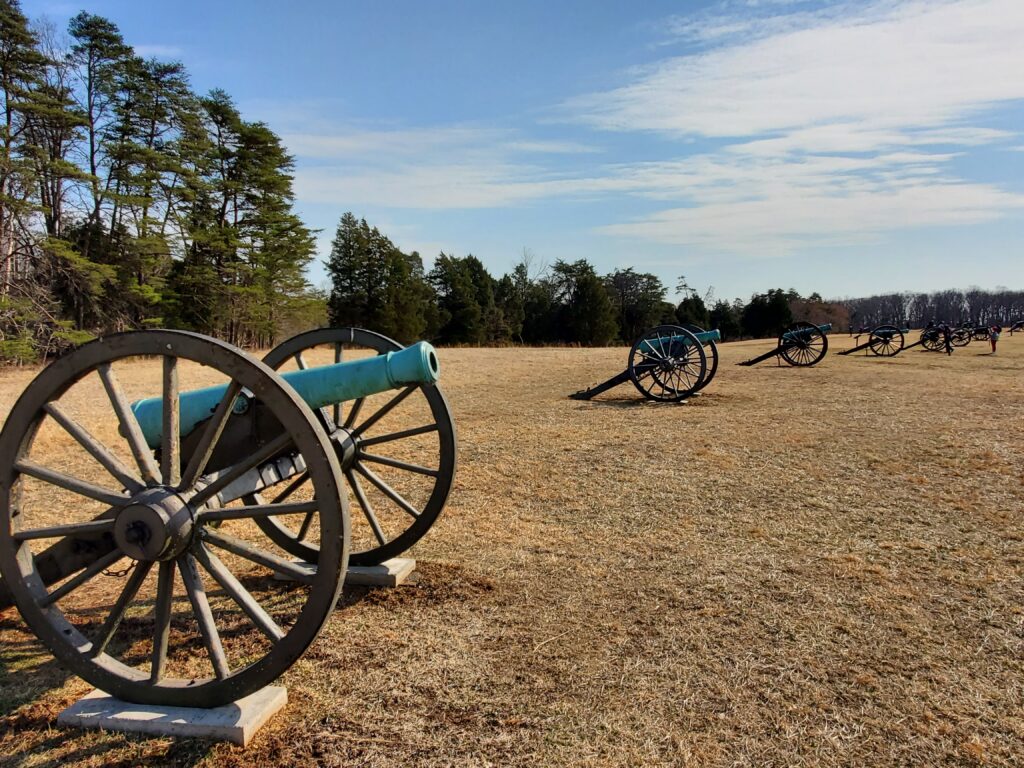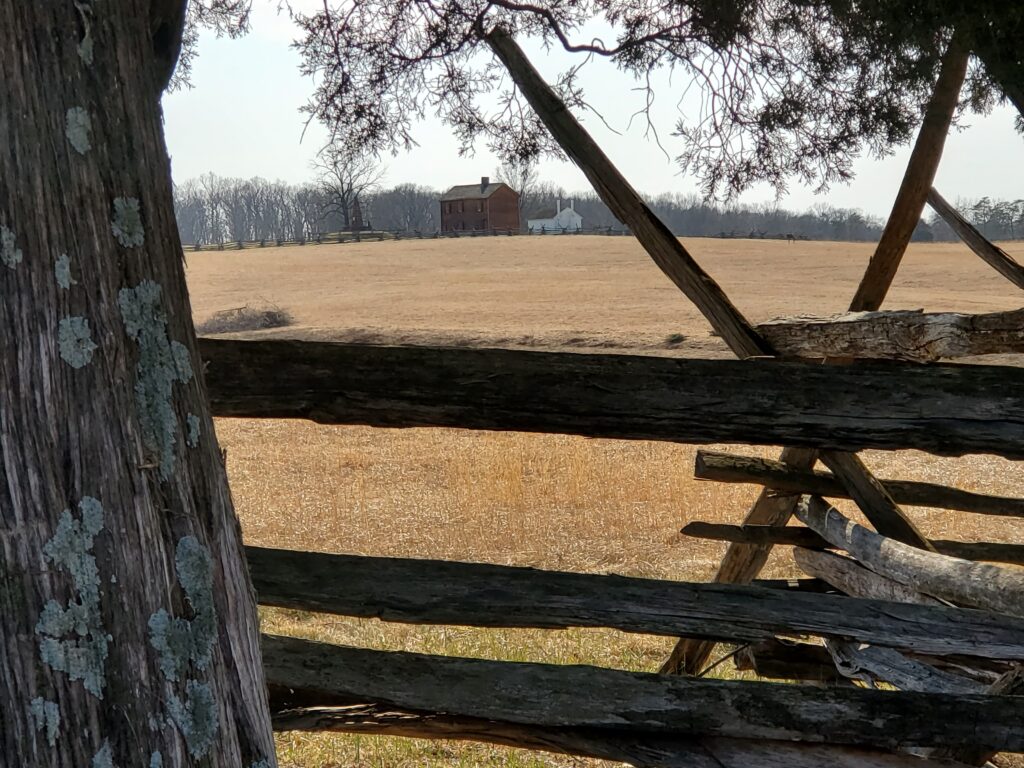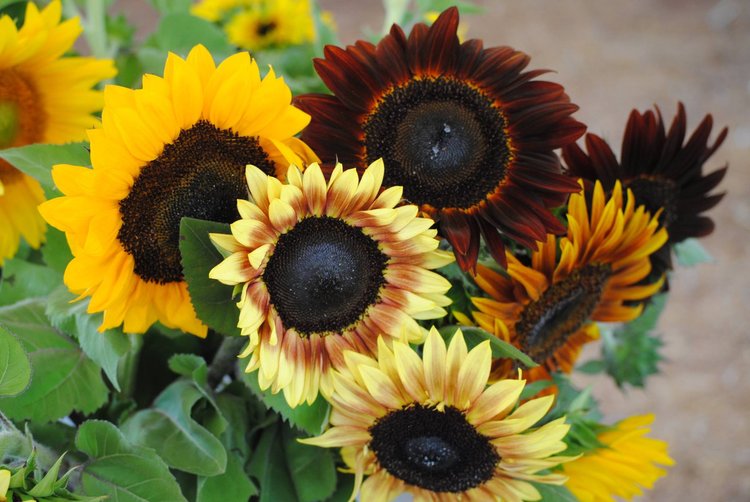Hiking the Battlefield
I don’t understand war. I never have and likely never will. After this terrible, horrible, no good, very bad week of war in Ukraine, I found myself drawn to the Manassas Battlefield. I don’t know what I sought—answers, perspective, hope. So, I walked among the cannons, the historical kiosks, the statues, the wide-open fields, and blue sky.

This is what battlefields are supposed to look like. Our Americanized perspective tells us that battles are waged on fields and across grassy knolls. Or jungles, or rugged mountains. They are not waged in neighborhoods and streets amid homes and schools and playgrounds and apartment buildings. The images coming across the television and the internet are sickening and scary and perplexing.
A few images have been heartening. The white-haired grandma learning how to aim a rifle. The couple who wed and spent their honeymoon keeping the Russians at bay. The woman in a trench coat dropping f-bombs and sunflower seeds at the feet of a Russian soldier. The open arms of Poland with welcome signs for the refugees at the train station. These stories distract us with that warm glow of hope, averting our eyes from the terror unfolding for a free people.
My boots crunched the winter-beaten grass of the battlefield as I crisscrossed the field. I visited the ruins of a home owned by a freedman who was caught in the crossfire. The man’s supplies were taken for feed for man and horse during the two battles waged here within thirteen months of each other. I passed the monuments to men who had exhibited great courage and lost their lives in the process. I read about the stories, legends, and body counts. I wondered where the monuments would one day be built in those Ukrainian cities for President Zelensky, who has stood with his country in the chaos, or the mother who shielded her child from the bombs falling from the sky.

Artists have long attempted to comprehend and explain the truths and devastations of war. Pablo Picasso with his mural “Guernica” or Hemmingway with his war-time tome For Whom The Bell Tolls or Edwin Star’s song “War What Is It Good For” or any number of Bob Dylan’s protest songs. Watching the coverage of Ukraine feels like a live-action version of e.e. cumming’s poem, “The Waste Land.” These artists all struggled to explain the insanity of war and its aftermath.
I wish someone could answer my question in some artful way: Is it possible to be patriotic, love your county, and honor those who fight for our freedoms and values while despising the costs (financial and emotional), the bloodshed, the fear? The lusty power grabs. The absurdity. I’ve found myself humming Marvin Gay’s song “What’s Going On” throughout this past week.
For most of my hike through the battlefield, I followed a father walking with his teenage son. I watched them consume the same history and facts that I consumed along our path. They talked some, walked silently for a while, pointed out a hawk that flew above us. I imagined I was watching love in action and the building of a legacy steeped in memories that would serve them both in the future. The building blocks of a relationship that would help explain the inexplicable that life offers. I hoped that teenage boy would never know the realities of war and always appreciate his freedom and whatever wisdom his father imparted on this battlefield. I hoped, and that felt sufficient.
We may always have a world where war exists, but I’d love to see a world with more fathers and sons (and mothers and daughters, aunts and uncles with nieces and nephews) sharing an afternoon, walking and talking and trying to make sense of the world. Is it an antidote to war? I have no idea. I only know that’s the world I want to live in.
How about you?




I started to type “with respect to” which in the case of Putin would be an extremely poor choice of words. So, in regard to Putin, my belief is that he unquestionably suffers some mental illness akin to megalomania. He, like Hitler, has no business being the head of a country or anything else for that matter. Unfortunately, coming out of the cold war, Russians apparently had no plan B for the style of government that they should adopt. History provides other cases where rudderless nations have fallen into the hands of the ruthless. Putin will not stop until he is stopped likely by a speeding bullet. But, even if that were to happen, what next for the Russian people? Talk about a dilemma of major proportions!!
All great and logical points, for sure. Hard to deny that this thing is not going to end well.
Beautifully stated and emotional at the same time. Raw times are here and hopefully will end soon. Thanks Denise!
Fingers crossed and saying prayers!
Awesome! I especially love and agree with your last paragraph!!❤️
You definitely touched me emotionally. I just recently zoomed with a minister who’s boots on the ground are doing amazing things to help those in need there. It pains me to watch these images of war and frustrated that NATO with United States doesn’t go in there and stop this invasion. Then I think about my 21 year old son, and I start balling. How can I want to send others to go in there and save this freedom fighting country, if i’m torn to send my own son to battle. So, your’e right Denise. Trying to answer your question, “Is it possible to be patriotic, love your county, and honor those who fight for our freedoms and values while despising the costs (financial and emotional), the bloodshed, the fear? Yes, but the answer makes us bare the weight that freedom comes with a HUGE price. Almost too much to bare.
Thank you for such thoughtful comments. From a mother’s perspective, this topic is all the more difficult and tragic. Such a dangerous and perplexing time that puts some of our most basic values and instincts in conflict. I value your thoughts. Thank you!